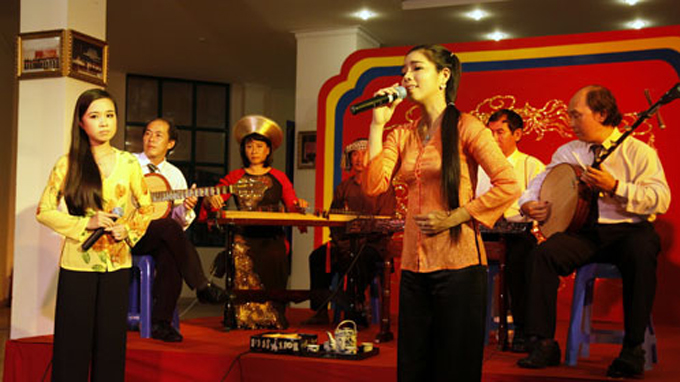The Ministry of Culture, Sports, and Tourism announced on Dec 5 that Vietnam’s “Don ca tai tu” (southern folk music) has made UNESCO’s Representative List of Intangible Cultural Heritage of Humanity.
Vietnamese folk music was announced as one of the 11 new inscriptions on UNESCO’s Representative List of Intangible Cultural Heritage of Humanity at the Intergovernmental Committee for the Safeguarding of Intangible Heritage’s 8th session, which runs until tomorrow, Dec 7.
The application was submitted to UNESCO in 2007 and a host of promotion activities were held in the southern provinces to boost the chances of earning recognition for the regional music.
According to music researcher Bui Trong Hien of the Institute of Vietnamese Arts and Culture, following the recognition, the conservation of “don ca tai tu” will become considerably easier, as the art has attracted a large number of practitioners and audiences.
“We should just let ‘don ca tai tu’ develop as it used to, which will be the most efficient conservation approach,” he noted.
“Don ca tai tu,” considered one of the country’s main chamber music genres, originated from Hue court music and folk music of the southern region. The genre has been developing since the 19th century, changing with local taste. It thrived in the early 20th century and remains crucial to the country’s traditional culture.
“Don ca tai tu” is typically performed at festivals, death anniversary rituals, and celebrations by farmer-artists. Instrumentalists and singers express their feelings by improvising and ornamenting based on 20 principal songs and 72 classical songs. The art has been handed down orally through generations.
Among UNESCO’s 11 new inscriptions are “Kimjang”— the making and sharing of kimchi in the Republic of Korea— and the Music of Terchová in Slovakia.
Seven other genres of traditional Vietnamese music, including “nha nhac Hue” (Vietnamese Royal court music in Central Thua Thien-Hue province), “Quan ho” (Bac Ninh Folk Songs in northern Bac Ninh and Bac Giang provinces) and “ca tru” (northern ceremonial singing), have been recognized by UNESCO in the past as intangible cultural world heritages.


















































